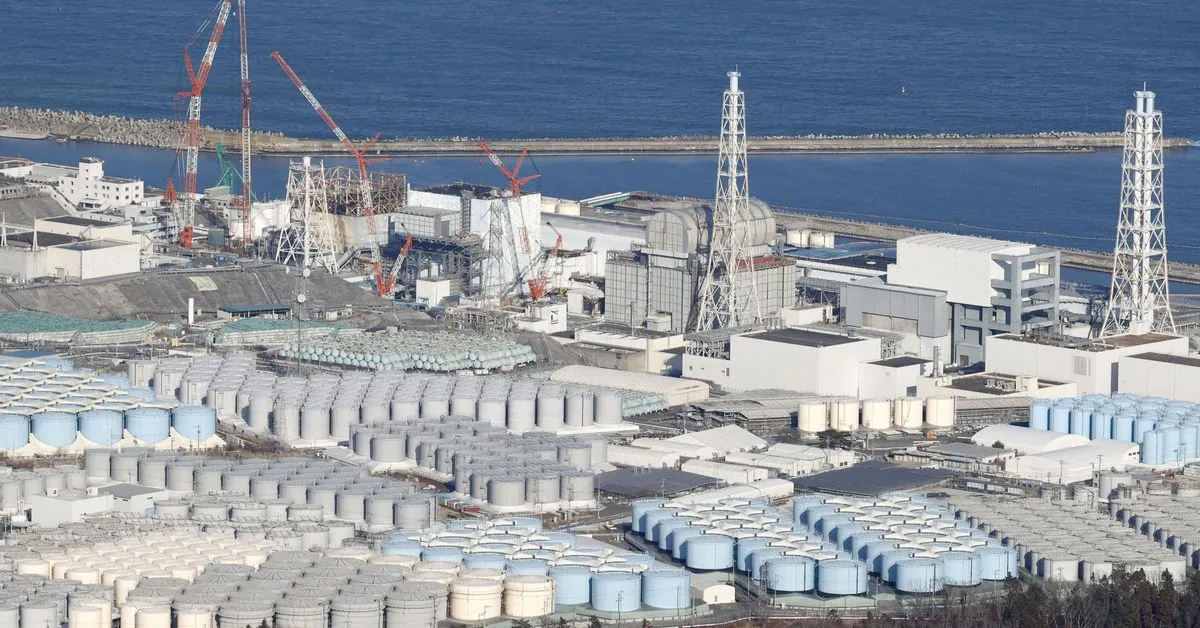- cross-posted to:
- news@beehaw.org
So I googled what the background level of Tritium is in seawater. The general consensus is that this various based upon where in the world you are, but it’s typically around 500 - 750 becquerels of tritium per m3. The amount they’re releasing is 190 becquerels of tritium per m3, or in other words, they’re reducing the average tritum radioactivity of the water…
So why is this news? Why haven’t the journalists gone, “Stupid people don’t understand how radioactivity and volumetrics work, and are complaining about the Japanese releasing water that is so highly treated it’s cleaner than the ocean average.”?
–edit– Not going to edit the above, but @zifk@sh.itjust.works correctly pointed out I’d got my units wrong… and then they got their units wrong replying. And that’s why we need good journalism who can actually look into this fucking stuff properly, and give reasoned responses!
deleted by creator
Actually we both screwed up by a factor of 1000, the article states 190 becquerels of tritium per litre, not cubic meter.
Seems like you have the right order of magnitude, butthe sources I’ve seen gives the ocean close to 0.5-2 TU, or “Tritium Units” which correspond to 180 Bq/m^3.So I wouldn’t call the water being released as cleaner, just basically on average with the ocean already.https://www.ldeo.columbia.edu/res/fac/etg.tmp/text/woce_method.html https://www.sciencedirect.com/science/article/pii/S0048969718348034
This is why I should stick to computing ;) Thanks for the update.
Still the comment should be and stay top because it’s far more informative than most of comments usually
Thanks - I did edit it to say whoops, but it’s still pretty informative I’d say. People get silly about radiation and then go out and tan in the sun for a few hours :P
The biggest issue with these topics is the lack of trust toward the scientists, or even forgetting that there are any scientists working on the project. It’s not as if the prime minister woke up to the idea of dumping nuclear waste into the ocean
Because Capitalists have been using scientists to push their agenda for almost a century now this is an article about the oil and tobacco industries using the same scientists.. If you google scientists supporting fossil fuels you can find way too many other examples as well.
That’s a fair argument. Although I am against making a generalization, especially since the IAEA who greenlighted the operations seems to be fairly independent
Oh, I don’t assume that they didn’t do their diligence. I am just explaining why people wouldn’t automatically trust things solely because they have the title “scientist”, even it is a group of them.
They have to be doing this because of storage and safety costs.
Doesn’t tritium have a half-life of about 12.3 years? If they delayed the release until, say, after approximately 12 more years, surely half of the tritium in a given sample will have decayed.
Yeah, the article is FUD. They’re releasing far less than most other reactors release, especially from their neighbor China. It’s well below established limits and is highly unlikely to cause any real damage.
From the IAEA:
“Tritium emits weak beta-particles, i.e., electrons, with an average energy of 5.7 keV (kiloelectron-volts), which can penetrate about 6.0 mm of air but cannot penetrate the body through human skin. It may present a radiation hazard if inhaled or ingested but is only harmful to humans in very large doses.”
If a primary producer like phytoplankton is affected, isn’t it likely to impact impact all species that rely on them as a food source?
How about the real concern regarding the question of chronic exposure? If organisms are consistently taking in tritiated water over extended periods, does that constant exposure increases the chances of tritium being incorporated into critical molecules like DNA or proteins? Do we know the likelihood of that leading to long-term biological effects?
Can’t the tritium in tritiated water be incorporated into organic molecules during metabolic reactions? Have we observed the effects of tritium during biosynthesis, where water is a reactant or byproduct? During photosynthesis in phytoplankton, do we know the extent of tritium from tritiated water being incorporated into glucose or other organic molecules?
When marine organisms ingest or absorb tritiated water from their surroundings, it will circulate through their body just like regular water. Since tritiated water behaves chemically like regular water, it would surely be used in all physiological and biochemical processes within the organism.
Do we know the possibility for tritium to become incorporated into marine sediments, especially if it binds with organic matter? Could this create localised hotspots where tritium concentrations are higher than in the surrounding water? If so, won’t benthic organisms (those that live on the ocean floor) be exposed to these at those higher concentrations?
My biggest concern is the possibility of bioaccumulation in the food chain. Granted this would mostly impact small organisms to start, but they would then be consumed by larger predators, and how long before this leads to increased concentrations in apex predators?
I think it’s incredibly foolish for anyone to release water of this nature, Japan or otherwise.
That’s a lot of great questions that I hope there are answers to. But from the article:
That water will contain about 190 becquerels of tritium per litre, below the World Health Organisation drinking water limit of 10,000 becquerels per litre
So it’s about 2% of the limit for drinking water. Assuming there’s some correlation between drinking water and ocean water for acquatic life, I think it’s reasonable to assume that this is a trivial amount of tritium.
Yes, some aquatic life is likely to be impacted, but whether that amount is actually statistically significant is another question entirely.
Despite assurances, some neighbouring countries have also expressed scepticism over the safety of the plan, with Beijing the biggest critic.
Here’s an article where Japan claims China releases many times more tritium than Fukushima will. I don’t have access to this article, but if you do, it seems like it should be useful in comparing with the claims in the previous source.
So I think it’s a lot of FUD either from China, anti-nuclear power groups, or both. To me, it seems like something that should probably be studied, but not worried about until we actually have reason to believe it’s problematic.
It’s a lot of tritium, versus baseline. Continental precipitation tritium is ~10 TU, the maximum ocean surface readings at high runoff locations (elevation runoff, not industrial) are ~2TU, most ocean readings are ~0.25 TU.
1 TU = 0.15 Bql
So this is >125x what is found in uncontimanated freshwater, or >625x what is found in the worst measured ocean runoff locations, or ~5,000x average ocean readings, and >8,000x Southern Ocean surface waters.
This is also after all the atomic bomb tests, that added most of the tritium in the environment today. here is a cool paper about using tritium to measure ocean currents that I got most of my data from.
It may be safe for humans, but I don’t think you can handwave away potential dangers to aquatic life based off that.
Again, the main opponent here is China, who allegedly puts way more tritium into the water than Japan. So it’s a case of the pot calling the kettle black.
South Korea doesn’t seem to have an issue with it, and S. Korea is also an economic rival of Japan. But maybe S. Korea is less affected because of currents, IDK.
So we should definitely study the effects, and I’m sure there are plenty of interested parties doing just that, but we shouldn’t be going on the attack until there’s actual data pointing out harm. Right now there’s mostly FUD, and until that becomes fact (i.e. an adjustment to WHO or a similar body’s standards), I think we should monitor it closely but go forward with it.
If any of this were true, it still wouldn’t matter. The global oceanic ecosystem is already going to collapse in the immediate future, and there is no real world possibility that anything is going to be done to stop it.
Here’s a hot take: fuck Japan and any country that does this kind of shit. Will it dilute? Yes. Does that make it safe? Absolutely not!
Build better nuclear power plants, ffs, or dump the toxins in Tokyo. Keep the bullshit on your soil.
Edit: 25 people think radiation is gonna give them superpowers or something. Why am I being downvoted for being against countries that pollute? Yes, there are worse ones than Japan, but come on, you tools. No one is in the right when they do that shit.
Here’s a hot take: fuck Japan

and any country that does this kind of shit.
A lot of countries are guilty of environment destroying stuff sadly
Ya, guess Japan gets a free pass because… why, again? Someone else is worse?
“Murder isn’t bad because Hitler killed way more people!”



